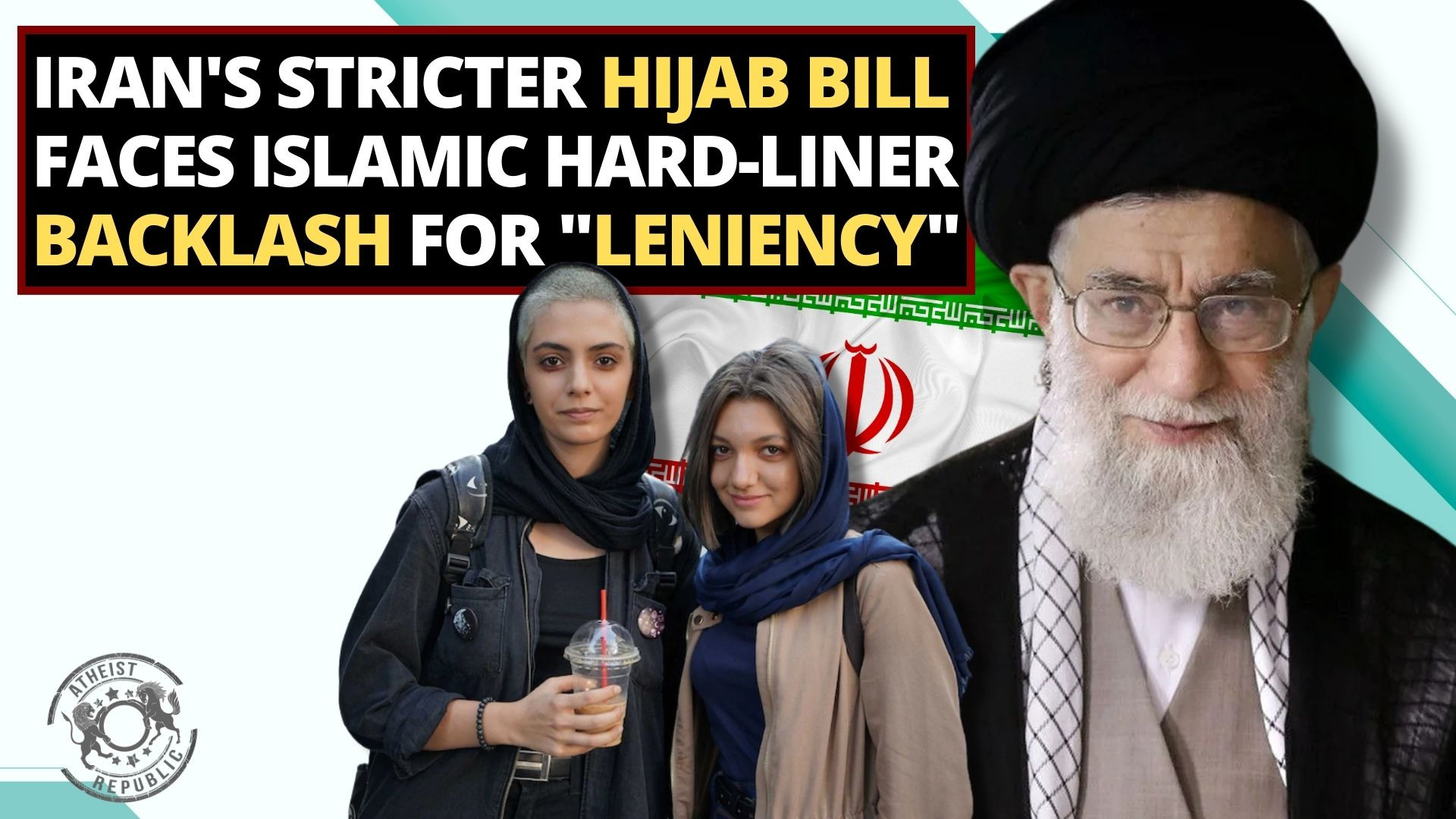
To show that it remains keen on enforcing its mandatory Islamic dress code laws, the Islamic Republic of Iran is pushing for a new, stricter hijab bill that will impose harsher punishments against women who are not wearing the religious headscarf and those who encourage them not to wear the hijab.
The new proposal was slammed by activists and Iranians opposing the regime. Hardliners and pro-government supporters also criticized the new bill for being too lenient and saying it doesn’t go far enough.
Hardliners in Iran have strongly criticized a government hijab bill and claimed its leniency would only encourage further defiance of hijab rules. https://t.co/K5a9TM4xkr
— Iran International English (@IranIntl_En) May 26, 2023
According to the version published by the Iranian media, the proposed legislation outlines tougher punishment against women flouting the hijab, from fines and deprivation of “social rights” to three years of jail time.
The new law also punishes those who engage in social media campaigns against the hijab. The legislation also states that anyone who insults, degrades, or assaults women without the hijab will be penalized.
Actresses who remove their hijab in Iran will be banned from all cultural activities and performances for up to a year under a new bill going through parliament.https://t.co/9uVBD1XQxr
— Iran International English (@IranIntl_En) May 20, 2023
The Iranian judiciary drafted the law, and the government approved it on the weekend of May 27 and 28, and it was then presented to the legislature. It remains to be seen when lawmakers will debate and vote on the proposal.
While the draft bill was criticized by activists such as Britain-based feminist Samaneh Savadi for consolidating what she describes as “gender apartheid” in Iran, hardliners and pro-regime individuals denounced the bill for being too permissive and not doing enough to severely punish those who oppose the country’s mandatory hijab laws.
“It is as if the bill was prepared not to deal with unveiling, but with the aim (albeit unintentionally) of removing the existing legal obstacles and laying the groundwork for the expansion of this ugly and hideous phenomenon!” editor of the Hardline daily Kayhan Hossein Shariatmadari said in his editorial published on May 22nd.
Another hardliner, Mehdi Salahshur, mocked the legislation by saying that the draft bill should be renamed “the bill to support the unveiled.” In addition, Hamshahri, a daily newspaper, asked Iranian President Ebrahim Raisi to revoke the bill, claiming that it gives “immunity” to hijabless women from arrest by police and other hijab enforces.
A bill for a new hijab law in Iran is expected to be drawn up within the next two weeks and will then be approved by parliamenthttps://t.co/8Pa3Ysr7ji
— The New Arab (@The_NewArab) March 29, 2023
Ali Bahadori Jahromi, a spokesman for the Iranian government, responded to the criticisms by saying that the text of the bill circulated by the media was not the version approved by the government. Mohammad Ali Naghali, a member of Iran’s parliament, said that the legislature currently does not accept the draft bill and promises that amendments will be made to enforce stricter punishments.
Samaneh Savadi told RFE/RL that “the Islamic Republic is helplessly trying to satisfy its supporters while at the same time [trying to convince] the international community that these actions are legal” and added that “so far, it has failed at both.”
Shahindokht Molaverdi, a former vice president under the government of former President Hassan Rouhani, said the crackdown against the hijab protests that started after the death of 22-year-old Mahsa Amini under the custody of the morality police would only result in more protests against the government.
